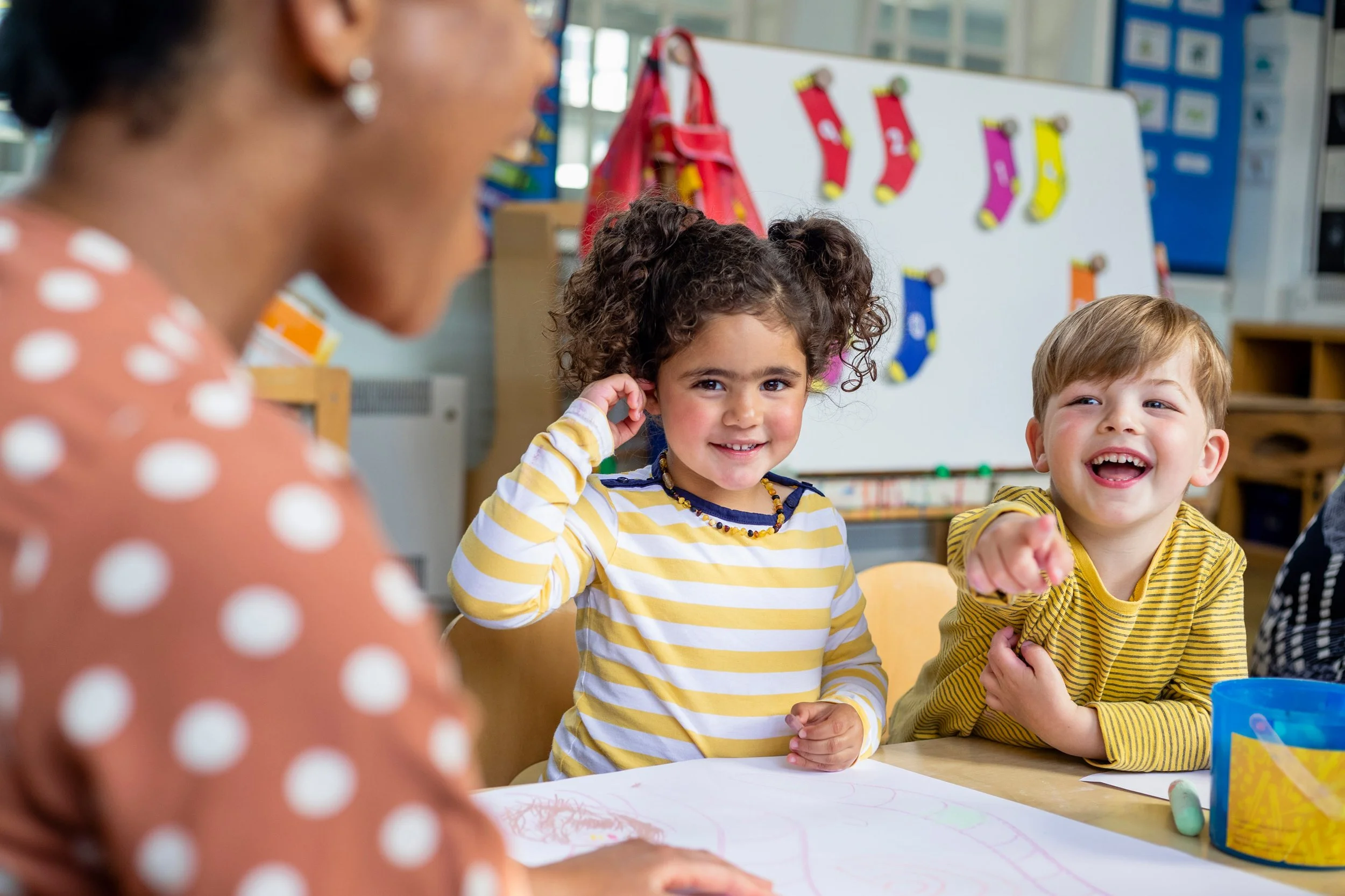Ages 6 weeks – 16 months
Infants
Welcome to our Infant Room
Dear parents,
We are thrilled to welcome you and your little ones to our infant classroom! Our team of experienced caregivers is dedicated to providing a warm and nurturing environment for your child to learn and grow.
We understand that sending your child to daycare can be a difficult decision, and we want to assure you that your little one is in good hands. Our staff is trained in infant CPR and first aid, and we follow strict safety and sanitation protocols to ensure that your child is always safe and healthy.
In our classroom, your child will have the opportunity to explore and learn through play, music, and sensory experiences. We will work closely with you to ensure that your child’s individual needs are met, and we encourage you to communicate with us regularly about your child’s development and progress.
Thank you for entrusting us with the care of your precious little ones. We look forward to getting to know you and your family!
Sincerely,
Infant Classroom Team
Infant curriculum outline:
Sensory Development
Infants learn primarily through their senses, so it’s important to provide them with plenty of opportunities to explore the world around them. Activities might include playing with soft toys of different textures, listening to music, and introducing new smells and tastes.
Gross Motor Skills
Even though infants can’t walk yet, it’s important to help them develop their gross motor skills. Activities might include tummy time, rolling over, and crawling games.
Fine Motor Skills
Infants also need to develop their fine motor skills, which will help them with tasks like grasping objects and eventually learning to write. Activities might include playing with finger puppets, stacking blocks, and doing simple puzzles.
Language Development
Even though infants can’t yet talk, it’s never too early to start working on language skills. Activities might include reading books, singing songs, and talking to your baby throughout the day.
Socialization
Infants also need to learn how to interact with others and develop social skills. Activities might include playing peek-a-boo, singing and clapping games, and attending baby groups.
We recognize that very infant is different and will develop at their own pace. The most important thing for us, is to provide a safe and nurturing environment where your baby can explore and learn at their own pace.
Preparing your infant for daycare
Preparing your infant for daycare can be a challenging experience for both the baby and the parents. However, with proper planning and preparation, it can be a smooth transition for all parties involved.
One of the first things you should do is to schedule a meet and greet with the Director with your baby. This will give you and your baby a chance to familiarize yourself with the environment, meet the staff, and see how your baby reacts to the new surroundings. This is a great time to have all your paperwork and supplies turned into the center. You can also discuss the daycare’s policies and procedures with the staff and ask any questions you may have.
It is also important to establish a routine for your baby before they start daycare. This can include setting a regular sleeping and feeding schedule, as well as getting them used to being away from you for short periods of time. One big transition that we recognize is sleeping in a crib. It would be helpful to transition your child into a crib during naptimes if they have not yet experienced a crib setting before starting at daycare.
By taking these steps, you can help ensure a smooth transition for your baby into daycare and give yourself peace of mind knowing they are in good hands.
More programs
-

Toddlers
Ages 16 months – 32 months
-

Preschool
Ages 33 months – 5 years
-

Pre-K
Ages 4 years – 5 years






